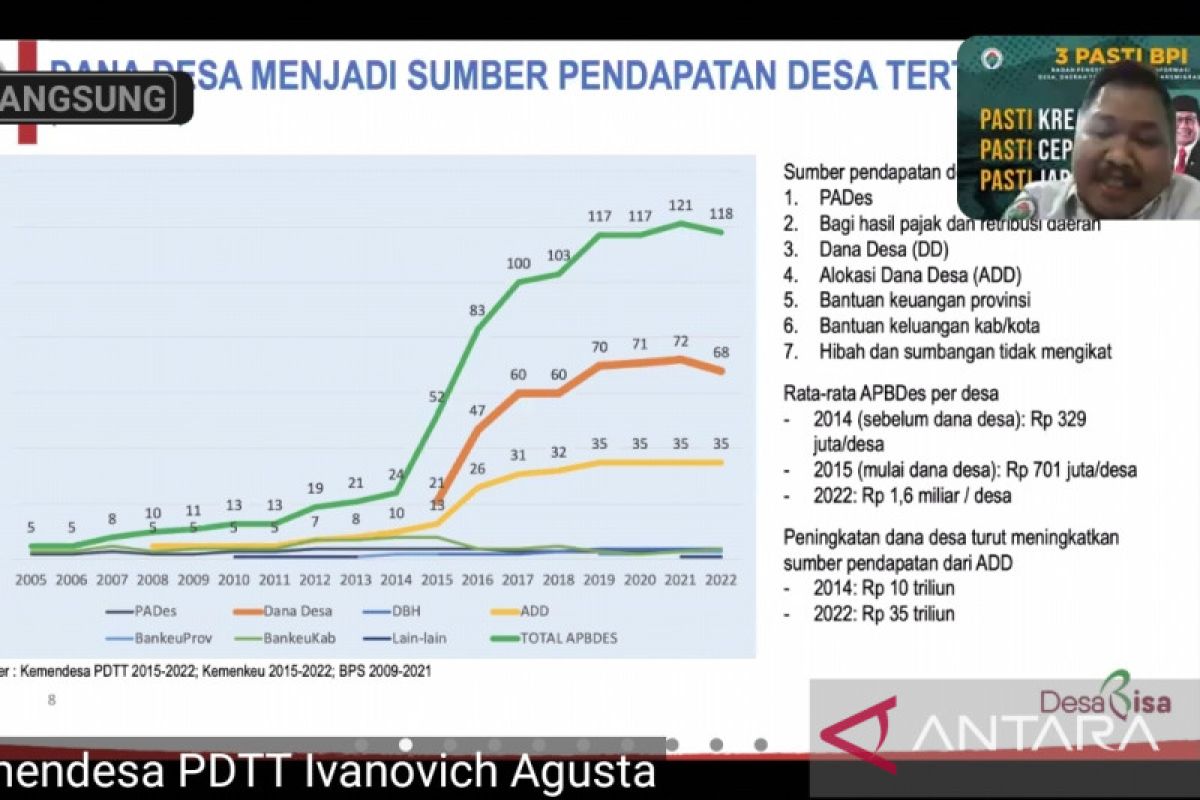"There are indications that village funds reduce inflation in villages more quickly," head of the ministry's Development and Information Agency (BPI), Ivanovich Agusta, said during a webinar on “Village Inflation Handling Policies,” which was followed online from here on Wednesday.
There are two important aspects in which village funds support the village economy, including inflation, he added.
First, village funds ensure that development takes place in all villages. "One of the results is that the costs in villages are going down. Because the costs are going down, then inflation is going down," he explained.
Second, village funds increase villages' financial resources.
According to Agusta, the average village budget (APBDes) per village in 2014 (before village funds were introduced) was Rp329 million, and it grew to Rp701 million in 2015 (when village funds began to be disbursed). In 2022, it increased to Rp1.6 billion per village.
Therefore, there was an increase of about four times in the average APBDes, he noted.
During the webinar, Agusta informed that one of the efforts taken to control inflation at the village level has been the provision of data and information on production results and commodity prices in villages, especially for food.
As of September 5, 2022, village fund utilization to control inflation and ensure food security has reached Rp8.07 trillion, he said.
"This is important because inflation control ensures self-sufficiency in production as well as food marketing," he explained.
Other steps taken to control inflation at the village level through the use of village funds include the construction of new and renewable energy infrastructures (Rp42.8 billion) and transportation support (Rp62 billion), he said.
"We know that utilization of village funds for energy and transportation has become relevant because prices of fuels, especially the subsidized ones, have risen," he added.
Related news: Village Fund for food resiliency reached Rp8.06 trillion: Minister
Related news: Village fund helped reduce number of underdeveloped villages: minister
Related news: Ministry disburses Rp34.72 trillion in village funds as of July
Translator: Zubi Mahrofi, Raka Adji
Editor: Sri Haryati
Copyright © ANTARA 2022












